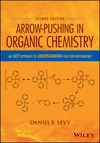We are now in the middle of summer and many of those participating in the career networking session of January's CSU Biotechnology Symposium have graduated. As this class, and those following, come to the realization that today's economy presents significant challenges to those entering the workforce, questions regarding required knowledge and experience become relevant. As I address the last group of questions raised at the symposium, it is important to understand that knowledge and experience are very subjective metrics. Many skills can be obtained on the job while other skills require advanced training and/or further education. The best advice I can offer to those of you entering the workforce is for you to evaluate what you want to do and then to make sure that your knowledge and experience is current and reflects the state-of-the-art of chemistry-related technologies. There is a great deal of competition for jobs today and your greatest assets live within the breadth and depth of your skill sets.
How important are analytical techniques (NMR/HPLC/MS/etc.) for new hires?
In industries dependent upon chemistry and biology, solid understanding of modern analytical techniques is essential. Specifically, nuclear magnetic resonance (NMR) spectroscopy is the workhorse technique used to prove molecular structures. High pressure liquid chromatography (HPLC) is important to assess chemical purity, to purify chemicals and to identify chemical components in complex chemical or biological mixtures. Mass spectrometry (MS) provides information regarding molecular weights of pure chemicals or, when used in conjunction with HPLC, helps to identify components of interest in complex mixtures.
While the instrumentation utilized among various companies varies, the type of data generated will be more consistent. Therefore, it is more important to understand the basic principles associated with data analysis than it is to know how to operate the instruments. Instrument operation is learned on the job but understanding data requires more in-depth knowledge and education.
What opportunities exist for BS/MS level chemists in this economy?
Throughout the pharmaceutical industry, there has always been a greater demand for BS/MS level contributors compared to candidates with higher degrees or significant years of experience. This trend reflects the hierarchical nature of organizational charts where those with more experience generally manage those with less experience. In today's economy, corporate structures are generally the same as those in better economies. The difference lies with the size of corporate structures. In lean economic times, there are fewer opportunities available across the board. The good news is that, compared to senior level contributors, research associate candidates are in higher demand.
In short, there are opportunities for BS/MS level chemists in today's economy. However, candidates for these jobs must be able to present themselves as the most qualified and knowledgeable candidates available if they are to be competitive.
What are the requirements for an entry level chemistry job?
Requirements for entry level chemistry jobs in the biopharmaceutical industry vary depending upon the needs of a given program. I have personally hired individuals with BS, MS and PhD degrees. At the BS level, I generally look for individuals who have significant laboratory experience beyond laboratory coursework. This experience can be obtained through working with a professor as an undergraduate researcher, working as a summer intern or working in a company environment.
At the MS level, most candidates have some academic research experience. When hiring MS level candidates, I generally look for a documented abilities to independently follow protocols and to work in a laboratory environment with minimal supervision.
At the PhD level, candidates should be able to demonstrate their abilities in working independently in a laboratory environment, identifying/solving problems and evaluating the direction of their projects based upon emerging data.
How do supervisors interact with BS/MS level chemists in the lab?
I cannot speak for all supervisors in this area. However, having interacted with many BS/MS level chemists, I can describe the way I work. From my perspective, all members of my team are valuable contributors. Regardless of the level of experience, I always emphasize that my direct reports work with me and not for me. I try to give each member of my team ownership over various aspects of our projects. Through this structure which focuses on collaboration and empowerment, I have had tremendously successful and productive team relationships.
How can I learn more about molecular modeling?
Molecular modeling/computational chemistry is a technique used to predict the structure and properties of chemicals, enzymes and polymers using computer algorithms. When applied to medicinal chemistry, computational chemistry can provide insight into the binding modes of potential inhibitors as they interact with enzymes. Use of this tool has the potential to speed up the drug design process and guide chemistry efforts to more potent and useful compounds.
Many universities offer degrees in computational chemistry - both at the MS and PhD levels. For independent study, two recent books were published addressing the principles of molecular modeling:
Molecular Modelling for Beginners
Molecular Modeling: Basic Principles and Applications
With this posting, I have now addressed all of the questions raised during my participation in the career networking program at January's CSU Biotechnology Symposium. I hope that my answers have been helpful. Moving forward, as I continue writing this blog, I am happy to address topics raised by my readers and look forward to hearing your thoughts.
Have a good weekend
13 hours ago




